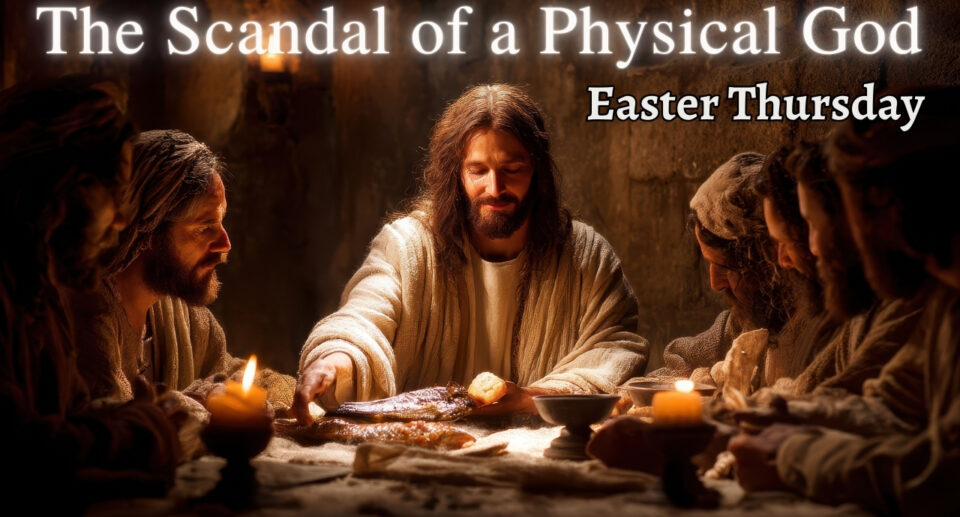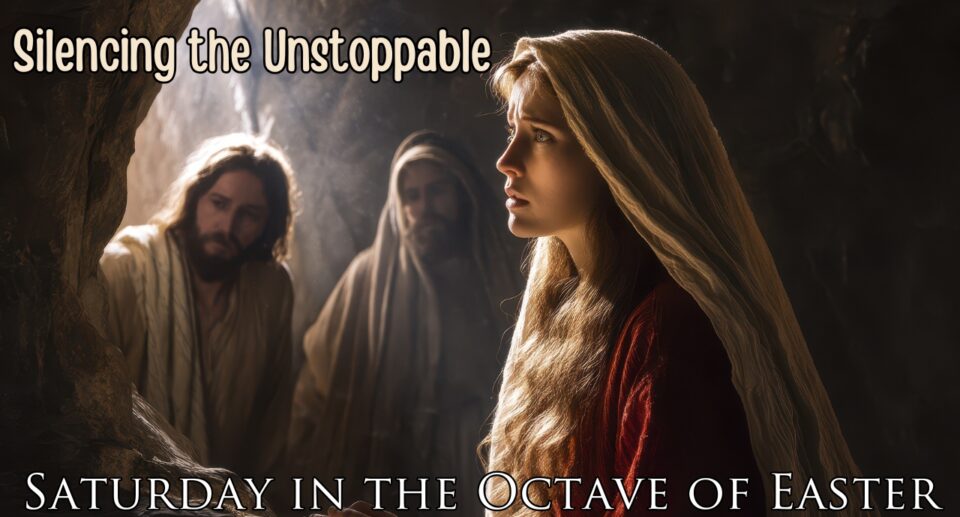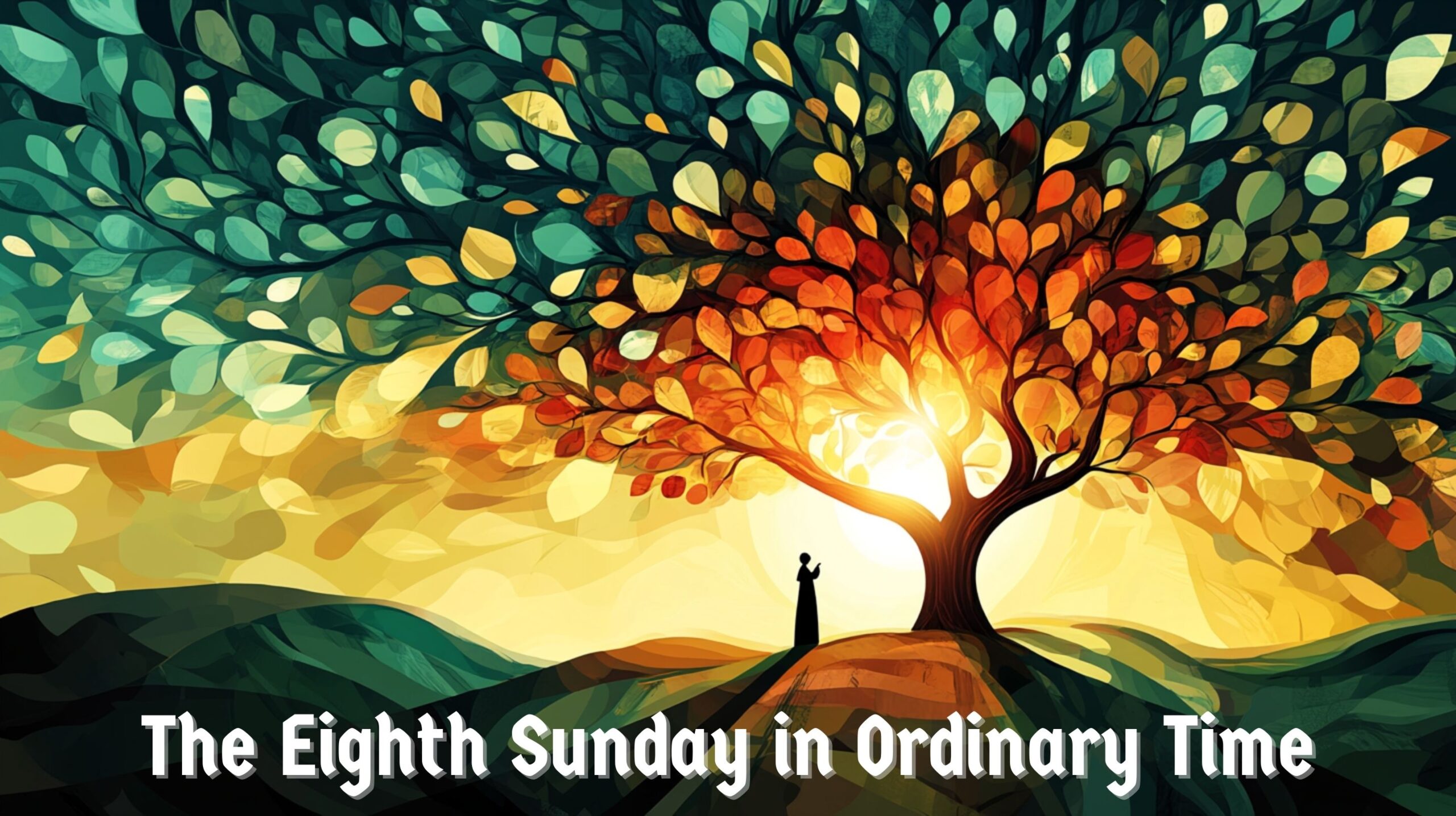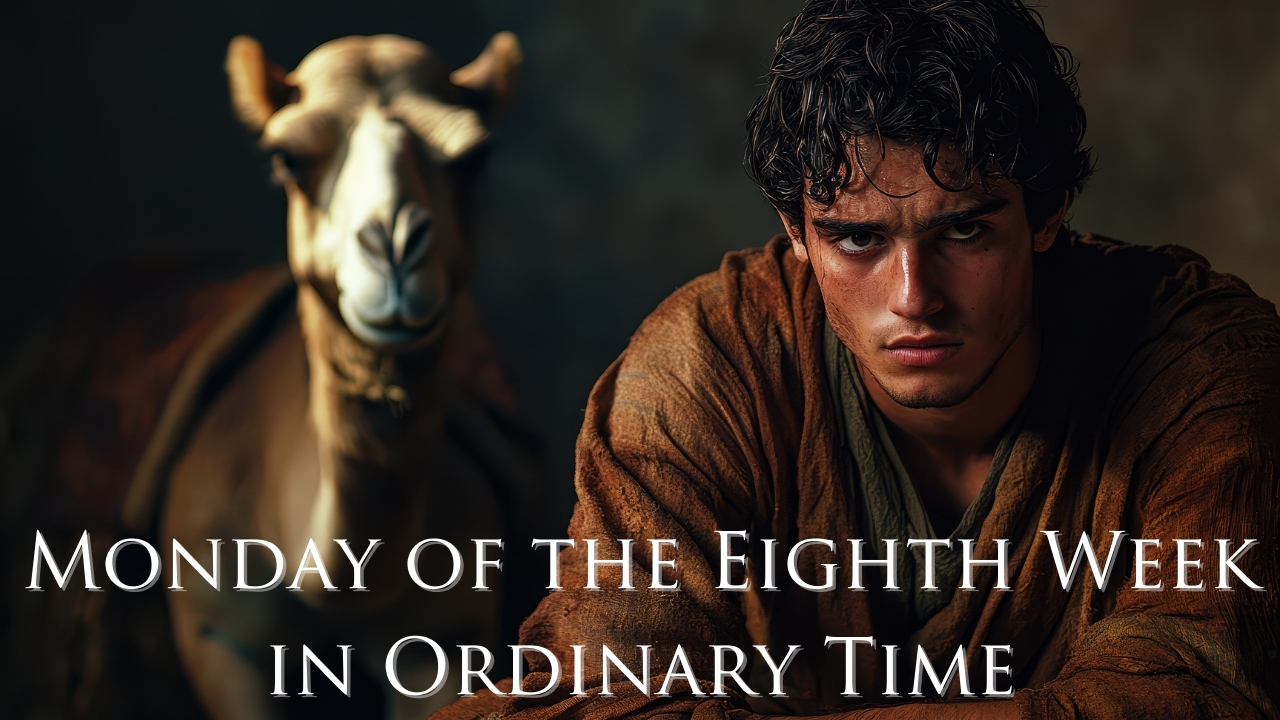Cornerstone and Captain: When Power Meets Purpose | Easter Friday Readings | April 25, 2025
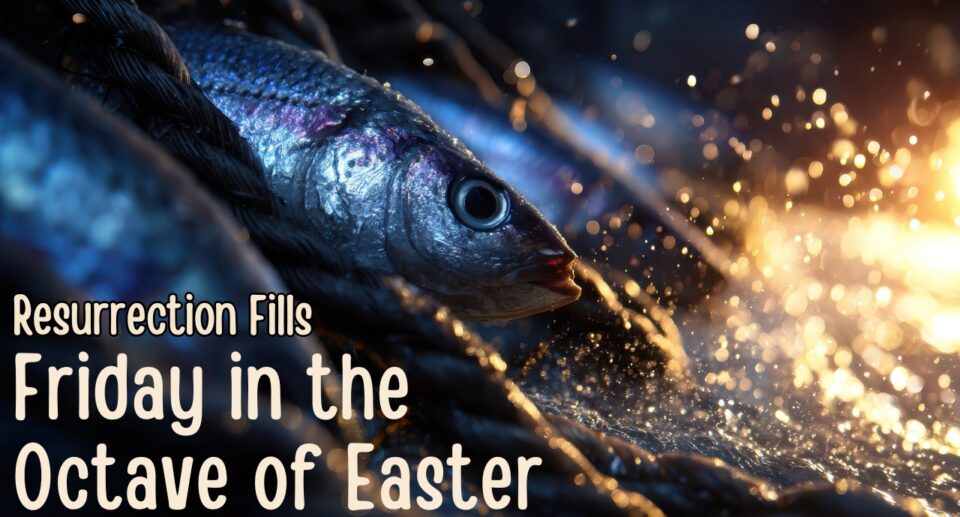
From the Sanhedrin chamber to the Galilean lakeshore, today’s readings reveal how encounters with the risen Christ completely redefine what’s possible. Ordinary fishermen speak with extraordinary boldness. Empty nets suddenly overflow with abundance.
Through this reflection, you’ll discover:
- How resurrection transforms fearful deniers into fearless witnesses
- Why the name of Jesus still breaks conventional limitations
- What happens when rejected stones become cornerstones
- How to actively participate in resurrection rather than merely commemorating it
Readings covered: Acts 4:1-12; Psalm 118:1-2 and 4, 22-24, 25-27a; John 21:1-14
#EasterOctave #ResurrectionPower #NoOtherName #EmptyNets #EasterFriday
Cornerstone and Captain: When Power Meets Purpose
“There is no other name.”
Four words that changed history. Four words that still divide opinion today.
Peter stood before the most powerful religious council in Judaism. The same council that had engineered Jesus’ death now demanded answers about a man miraculously healed at the temple gate.
“By what power or by what name did you do this?”
The question dripped with menace. The wrong answer would mean imprisonment or worse. These men had silenced Jesus. They could certainly silence an uneducated fisherman.
But Peter wasn’t that fisherman anymore.
“It was in the name of Jesus Christ the Nazorean whom you crucified, whom God raised from the dead,” he declared. His finger might as well have been pointing directly at their faces. “There is no salvation through anyone else, nor is there any other name under heaven given to the human race by which we are to be saved.”
This wasn’t diplomatic negotiation. This wasn’t cautious testimony. This was resurrection boldness—the kind that comes when fear of death has been replaced by certainty of life.
The council was stunned. These were “ordinary men with no special training.” They shouldn’t have had this kind of courage, this kind of eloquence. Something had fundamentally changed.
That something was Easter.
Acts 4 gives us a dramatically different Peter than the gospels showed. Gone is the man who denied knowing Jesus three times. Gone is the disciple hiding behind locked doors. In his place stands a fearless witness who names the crime of Christ’s executioners to their faces while proclaiming God’s vindication through resurrection.
Resurrection doesn’t just change Jesus. It transforms everyone it touches.
The second reading today gives us another glimpse of this transformation. After his resurrection, Jesus appeared to his disciples by the Sea of Galilee. They had been fishing all night with nothing to show for it when someone called from shore:
“Cast the net over the right side of the boat.”
When they did, the catch was so overwhelming they couldn’t haul it in. John immediately recognized: “It is the Lord!” Peter jumped into the water and swam to shore, while the others followed in the boat, dragging a net filled with 153 large fish.
On shore, they found Jesus cooking breakfast. “Bring some of the fish you just caught,” he said.
Two very different stories. One in a Jerusalem council chamber, one by a Galilean lakeshore. Yet they reveal the same essential truth: encounters with the risen Christ completely redefine what’s possible.
Peter and John weren’t speaking to the Sanhedrin in their own power. They were filled with the Holy Spirit, the same Spirit that raised Jesus from death. Their courage wasn’t self-generated bravado but overflow of resurrection life.
Similarly, the disciples weren’t fishing with their own expertise alone. When they followed Jesus’ direction—even when it seemed pointless after a night of failure—abundance beyond imagining resulted.
Both stories shatter conventional limitations:
Uneducated fishermen shouldn’t be able to stand fearlessly before religious authorities. Empty nets shouldn’t suddenly fill with so many fish the boat nearly sinks. A condemned blasphemer shouldn’t become the cornerstone of salvation. A breakfast host shouldn’t be someone who died by execution.
Yet this is precisely what resurrection does—it breaks the rules of what we think possible. It rewrites the story when we think the ending is already determined. It fills empty nets and empowers fearful disciples. It transforms rejected stones into cornerstones and executed teachers into breakfast hosts.
Our psalm celebrates this divine pattern of reversal: “The stone which the builders rejected has become the cornerstone. By the LORD has this been done; it is wonderful in our eyes.”
What appeared worthless becomes essential. What seemed finished becomes foundational. What was discarded becomes central.
This isn’t just ancient history. The same pattern repeats whenever resurrection power touches human lives:
Addictions that seemed unconquerable suddenly lose their grip. Relationships declared dead unexpectedly find new life. People written off as hopeless cases become powerful witnesses. Situations with no apparent solution suddenly reveal hidden pathways.
The question isn’t whether resurrection still happens, but whether we have eyes to recognize it and courage to participate in it.
Peter didn’t just passively appreciate Jesus’ resurrection—he allowed it to transform him from denier to proclaimer. The disciples didn’t just observe the risen Christ on shore—they cast their nets at his direction and brought their catch to his fire.
How might believers today actively participate in resurrection rather than merely commemorating it?
Perhaps by speaking truth in situations where silence seems safer. Peter could have given an evasive answer to the Sanhedrin. Instead, he named Jesus explicitly, knowing the risks. Resurrection courage still empowers believers to speak when fear counsels silence.
Perhaps by trying again in areas of repeated failure. The disciples could have dismissed the stranger’s suggestion after a long night of empty nets. Instead, they cast again at his direction. Resurrection hope still motivates believers to make one more attempt when logic says quit.
Perhaps by recognizing Jesus in unexpected guises. The disciples initially mistook him for a stranger on shore. Resurrection encounter still happens when believers look beyond appearances to see Christ in unexpected people and places.
As Easter week continues, these readings invite believers to live as resurrection people—not just celebrating an ancient miracle but participating in its ongoing reality. To speak with Peter’s courage, to cast nets with the disciples’ obedience, to recognize Christ where others see only strangers.
For resurrection isn’t primarily about what happened to Jesus, but what happens in us when we encounter him. It’s about cornerstones emerging from rejected stones and abundance flowing from empty nets. It’s about ordinary people speaking with extraordinary boldness and failed fishermen becoming fearless apostles.
It’s about the name that still carries power to save, to heal, to transform—the name of Jesus Christ the Nazorean.

